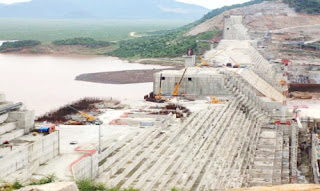One of the key drivers of Ethiopia’s growth has been the government’s focus on infrastructure development, especially in urban areas. Since the fall of the military government in 1991, significant funds have been invested in public works, including developing roads, hospitals, and higher education. The Ethiopian government spends an astonishing
65-70% of its budget on pro-poor development related activities. These improvements have allowed for more efficient and cost-effective transportation, job creation, and ultimately, a reduction in poverty.
However, much of the development has occurred in the capital city of Addis Ababa. The first step the Ethiopian government must then take is to invest a significant amount of money in rural infrastructure. Despite economic growth and large reductions in poverty, Ethiopia remains a very poor country,
ranked 167th in the world in nominal GDP per capita at $951. Investments in hospital and transportation construction, as well as more jobs outside of the agricultural sector, will help break the rural poverty cycle.
For a long-term investment, rural education must be improved as access to quality education is mainly located in Addis Ababa. Ethiopia has a literacy rate of
39%, compared to 96% in China and the world average of 87%. Rural areas are especially behind, having lower literacy rates and high levels of underemployment. While not an overnight fix, this is the first important step in preparing the future labor force to find work outside of the agricultural sector.
The next step for Ethiopia to become a player in the global economy is to increase exports and carefully manage foreign investment. Ethiopia’s large population provides an opportunity to produce goods in large quantities at competitive costs. As infrastructure improves, the economy should focus on and develop more manufactured goods, like machinery, as opposed to agricultural goods. As the world’s largest exporter at $2.5 trillion annually,
about 50% of China’s exports fall under the machinery category, like computers and broadcast equipment. For this to become a reality, foreign investment will be needed in addition to government funds, such as the recent investment in
The Grand Dam project that has been largely financed by Chinese banks.
Lastly, as foreign investment will create jobs and drive the economy, smart monetary policy can protect Ethiopians from the risk of inflation. Foreign capital inflows can cause inflation and reduce purchasing power—something many Ethiopians cannot afford. When more money circulates in an economy, a simple item like a loaf of bread can become too expensive. China was able to maintain low inflation during its period of growth by doing what every responsible central bank should: not print money unless it needs to. As Ethiopia continues to grow, it should do the same.
Looking forward, many economists predict Africa will be the next
hot spot for economic growth, much like Asian countries were in the second half of the 20th century. Ethiopia, as the one of the fastest growing countries in the world, has the potential to be at the forefront. The coronavirus will likely cause 2020 to be a down year for Ethiopia’s economy, as the world economy is expected to contract
3%this year. If Ethiopia achieves greater political stability and follows the recommended economic steps, it can become the “China of Africa.
Source: Diplomatic Courier




Comments
Post a Comment